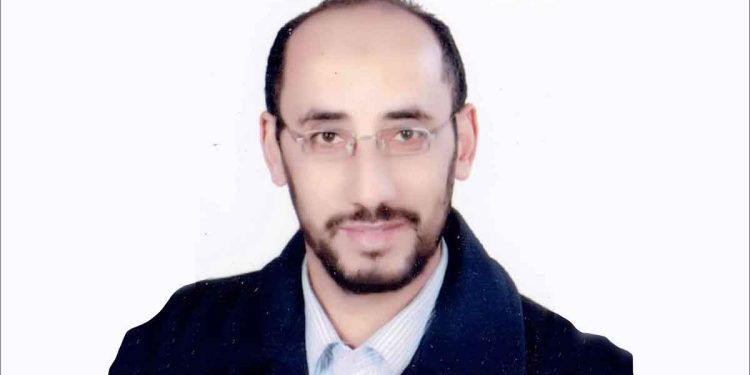The health of Egyptian political prisoner Abdelshafi Abdelhay (48 years old) has taken a severe turn, prompting his family to issue an urgent plea for assistance.
Abdelhay, currently held without trial in Wadi El-Natrun Prison, is suffering from an exacerbated neck tumour. Despite the escalating nature of his condition, Egyptian prison authorities have shown blatant obstinacy in providing him with the necessary medical attention. Furthermore, the deplorable conditions in his cell fail to meet even the most basic health and safety standards.
On April 1st, Abdelhay was transferred to Assiut Public Prison to receive urgent surgical intervention for his tumour at a specialized hospital. During a visit by his family on the 29th of that month, they were met with distressing news about his deteriorating health.
Following the closure of Assiut Prison and the subsequent relocation of detainees, Abdelhay’s family endured days of uncertainty regarding his whereabouts, only to discover that he had been returned to Wadi El-Natrun Prison. Their inability to visit Abdelhay thus far intensifies their apprehension for his well-being and very life.
Repeated pleas from Abdelhay’s family for his treatment have fallen on deaf ears, with negligence and no response as the prevailing responses. Their latest appeal, dated June 22nd, was directed to the Prison Authority, urgently demanding appropriate medical care.
Abdelhay’s arrest on March 9, 2020, from his residence in Tenth of Ramadan City marked the beginning of a distressing ordeal. For two weeks, he was forcibly disappeared at a National Security facility in Sharqia, enduring severe violations including torture, beatings, and electrocution in various parts of his body, resulting in dislocated shoulder and knee injuries.
Egyptian prisons and detention centres have witnessed an alarming rise in the number of deaths, with Egyptian authorities denying the International Red Cross Committee access to inspect prison conditions. As a result, prisons remain devoid of meaningful oversight, save for the public prosecution, which fundamentally neglects its duty to investigate torture crimes and instead becomes an accomplice in covering up the actions of perpetrators.
It is imperative to note that the International Covenant on Civil and Political Rights mandates the “treatment of deprived prisoners with humanity and respect for the inherent dignity of the human person.” The urgency to uphold these rights in Abdelhay’s case cannot be overstated.






























